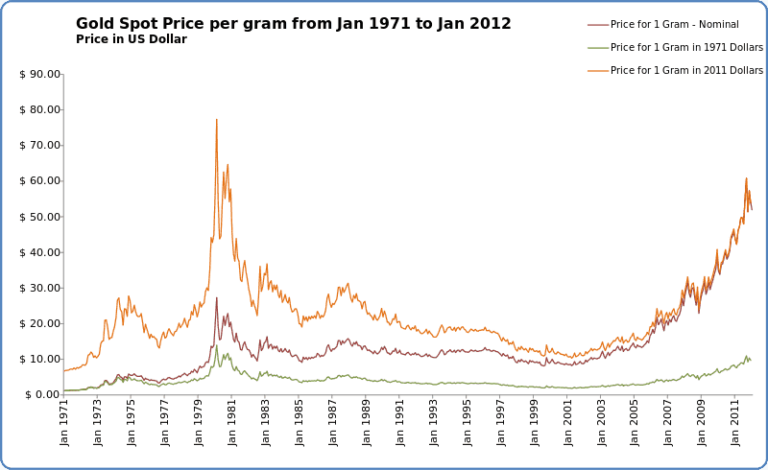5 Effects of Resource Depletion Explained
Effects of resource depletion include; ecologic destabilization, economic recession, public health decline, biodiversity loss, and industrial inefficiency.
This article discusses the effects of resource depletion, as follows;
1). Ecologic Destabilization (as one of the Effects of Resource Depletion)
Resource depletion has significant effect on the ecosystem.
This effect is driven by the imbalance in bioenergy distribution, which is established when resources are consumed in an unsustainable manner.
The ecosystem maintains its equilibrium by recycling energy in the form of biomass (and the derivatives of biodegradation) between the lithosphere, biosphere and atmosphere, as well as between the trophic levels of the energy pyramid.
Resource depletion reduces the overall amount of energy that is present in the ecosystem, and thereby reduces its ability to maintain self-sufficiency and sustainability.
Also, the environmental impacts of resource depletion can affect the ecosystem [1]. These impacts, such as decline in water, soil and air quality, and other forms of environmental degradation, can reduce the productivity and safety of the environment, which could be harmful to living organisms.
Aside natural ecosystems like tundras, forests and grasslands, resource depletion can cause ecological instability in a manmade setting such as agriculture, and could lead to loss of biodiversity.
Ecological destabilization can be prevented, reversed, or mitigated by implementing measures like environmental remediation, carbon capture, and sustainable farming, among others.

2). Economic Recession
Resource depletion affects the economy by reducing the availability and accessibility of important raw materials needed in various sectors and industries, thereby leading to a decline in productivity.
Economic recession shares close ties with excessive consumption or unsustainable consumerism, which is also one of the causes of resource depletion [2].
The negative economic implications of resource depletion can all be avoided by implementing circular economic principles that maximize the value and application of raw materials through recycling, material/energy recovery and reuse.
There are links between economic recession by resource depletion, and other sustainability-related concepts like climate change, global warming (and its derivatives such as heat waves) and population growth, all of which may contribute to depletion and recession.

3). Public Health Decline (as one of the Effects of Resource Depletion)
Because it affects the quality of the environment and the availability of resources, resource depletion also affects public health.
As a result of the depletion of resources, water, soil and air quality may decline. Resource depletion could be linked to various processes of environmental degradation like stormwater pollution, eutrophication, soil leaching, erosion and desertification, and oil spill, among others.
These processes can expose members of the public to unsafe environmental conditions, which could lead to the incidence of various illnesses.
Aside pollution-related illnesses, resource depletion can affect public health by reducing the access to raw materials that are needed for proper running of the society. The potential effects of this lack of access include food insecurity, unemployment, hunger, and poverty.
4). Biodiversity Loss
Loss of biodiversity is both a cause and an effect of resource depletion.
When resources become depleted due to overexploitation and unsustainable use, the ability of several organisms to survive becomes limited.
This can be due to any of various reasons, including habitat destruction, exposure to contaminants and natural hazard impact, and general lack of essential resources for survival.
Habitat destruction is a common pathways through which resource depletion threatens biodiversity.
An example of this is excessive exploitation of forest resources for biofuel and other raw materials. Such a scenario easily leads to deforestation, which affects the survival of biodiversity.
Biodiversity loss due to resource depletion can also occur in agricultural ecosystems, where excessive cultivation and nutrient shortages could reduce the range of species capable of surviving on a farm.
5). Industrial Inefficiency (as one of the Effects of Resource Depletion)
Both energy efficiency and resource efficiency are negatively affected by resource depletion.
The effect of resource depletion on efficiency, reduces the production quality and capacity of the industrial sector. This is often indicated by energy waste, low-quality products, and low energy recovery rates.
Conclusion
Effects of resource depletion are;
1. Ecologic Destabilization
2. Economic Recession
3. Public Health Decline
4. Biodiversity Loss
5. Industrial Inefficiency
References
1). Aquilas, N. A.; Forgha, N. G.; Mobit, M. O.; Agbor, M. S. (2019). “Natural Resources Depletion and Economic Growth:: Implications and Prospect for Cameroon Economic Emergence by 2035.” Natural Resource Endowment and the Fallacy of Development in Cameroon (pp.31-56). Available at: https://doi.org/10.2307/j.ctvvh85v5.8. (Accessed 18 October 2022).
2). Gurtner, B. (2010). “The Financial and Economic Crisis and Developing Countries” Available at: https://doi.org/10.4000/poldev.144. (Accessed 18 October 2022).
